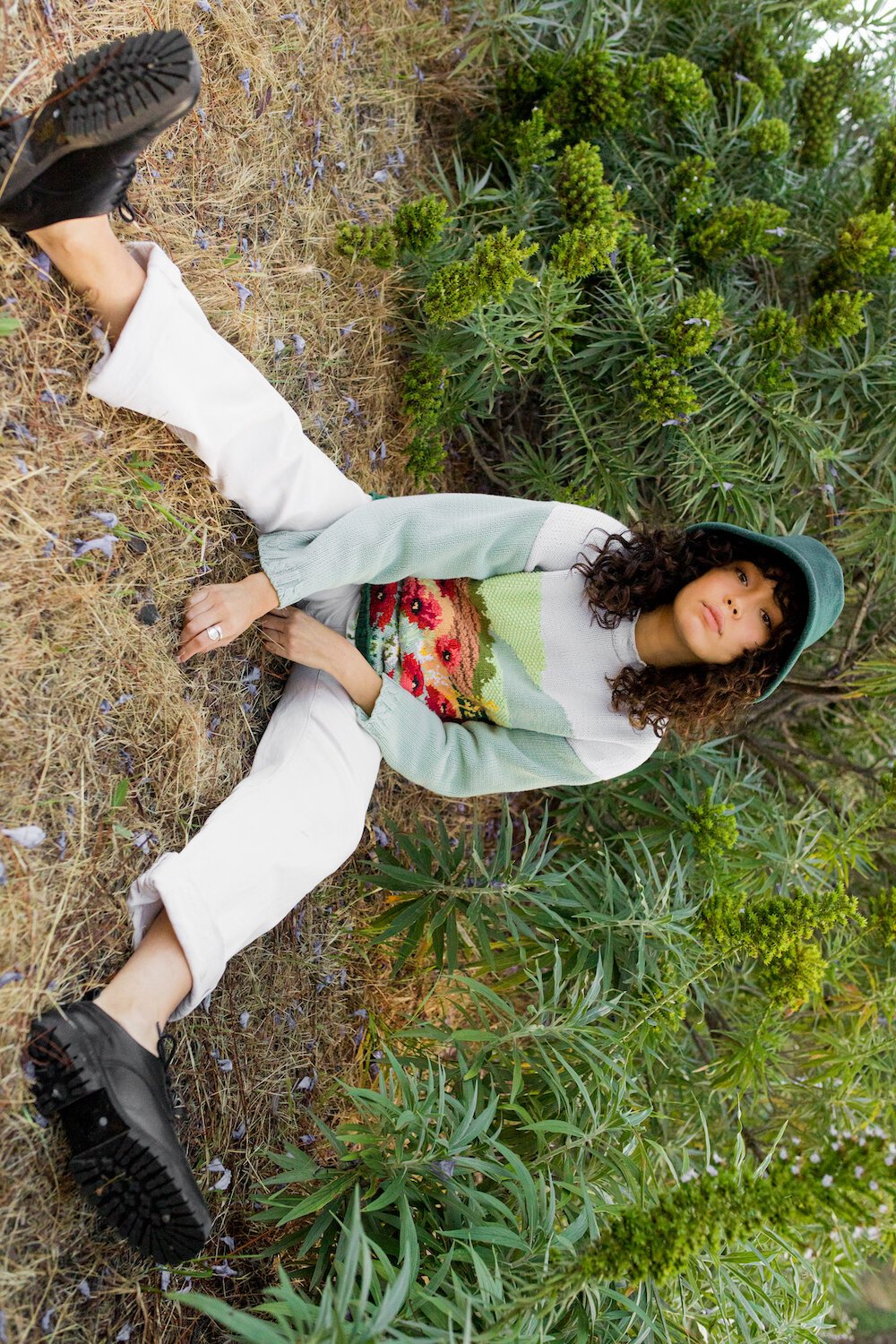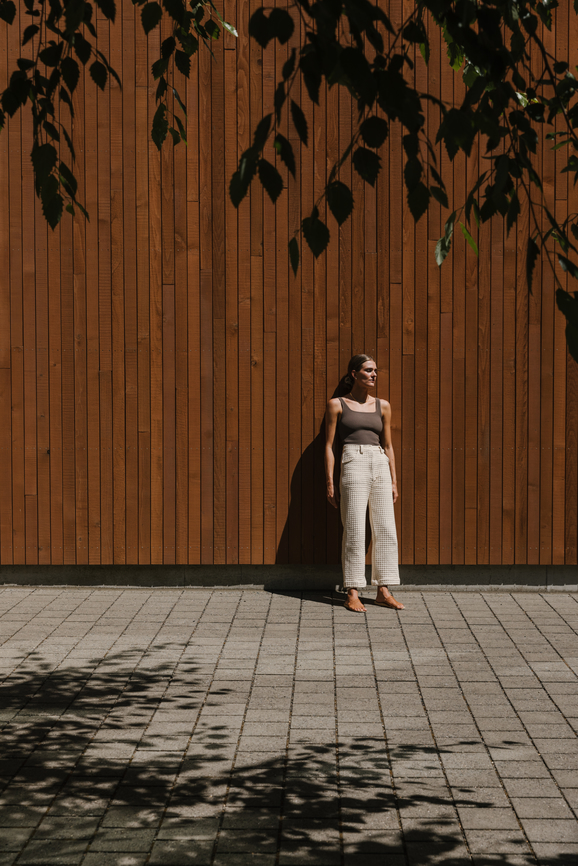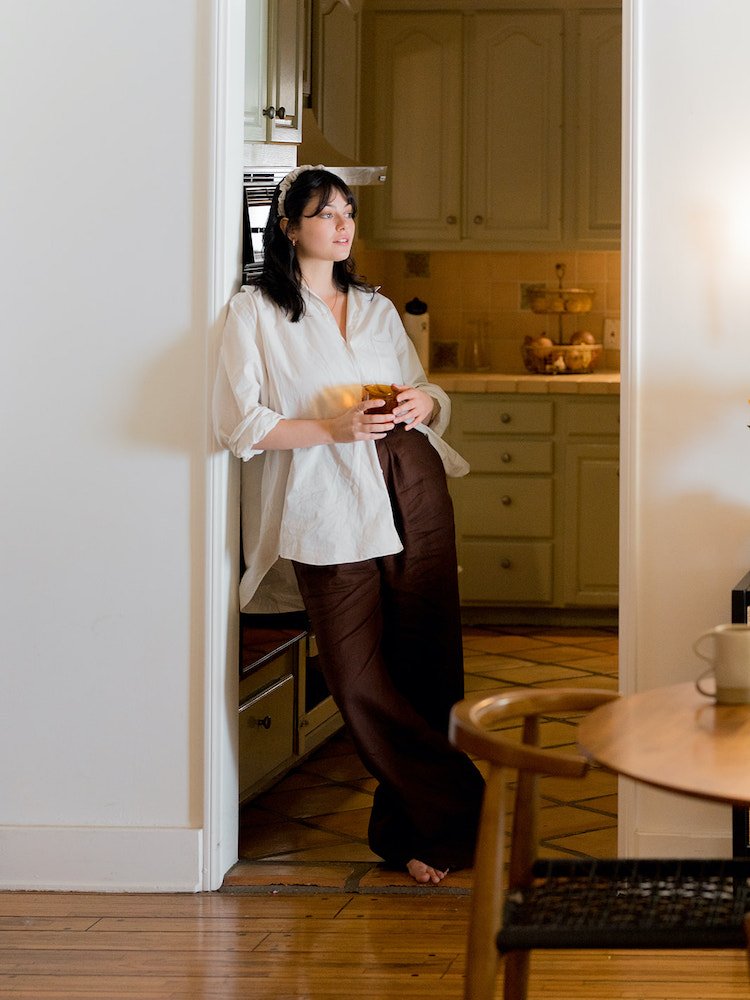
When Will I “Arrive”?
When I was younger, I’d lie awake at night planning my future, going as far as to create floorplans and pick out paint colors for my imaginary home. I wanted to live in a bungalow and be a professional writer. More than this, I dreamed about the person I’d become. Would I finally feel smart enough? Kind enough? Confident enough? At what age would I finally feel like I’d arrived?
I think about this idea of arrival like completing a long journey, only to turn back around and start a new one. Perhaps we reach a mountain peak or land on a distant shore off in the horizon. We breathe in the fresh air, sigh it out with relief, and then, without rest or a moment to relish, we say: This isn’t it. There are higher peaks, more distant shores. I’m not there yet.
Do you feel this way, too? With every milestone I’ve ever reached, I’ve only moved the goalposts a bit further—as soon as I got into the school I’d dreamed of, I began dreaming about my career. When I got the apartment I wanted, I started planning for the next one. And once I had the writing job, my parameter for becoming a “real writer” shifted, too.
“We convince ourselves that once we have X, we will finally be happy.”
Western society rewards us for chasing after our goals and dreams. It keeps us hungry and eager to work hard. We convince ourselves that once we have X, we will finally be happy. Once we’re our “best selves” or achieve the highest success, then we can start really living. Until then, our lives are pending as we run after a moving target. Except, whenever we get close, the finish line somehow inches farther away.
And that’s because the idea of arrival is abstract. Like a mirage, it beckons us just a bit further. Arrival is both an ever-present truth and a deceptive lie. We’ve already arrived and, also, we never will. This shore we’re trying to reach? It’s a construct we’ve created.
Perhaps it’s fear—maybe we don’t want to face our current circumstances. Facing the present means accepting potentially broken dreams or failed plans. When life takes us in unexpected directions, it’s easier to continue striving instead of sitting with our disappointment and grief. An illusory “someday” is favored over the present moment.
Maybe we’re also scared to look in the mirror. It’s easier to dream about who we can become than to acknowledge who we already are. This can feel especially challenging if we’re in a growing season or learning from shortcomings and mistakes. It’s okay to need help or to have internal work to do.
But does this mean we haven’t “arrived” yet? I’m not so convinced.
“We arrive when we release our plans and replace them with gratitude.”
The much-anticipated arrival happens when we accept the present moment, when we learn to remove expectation and judgment. We arrive when we release our plans and replace them with gratitude. This is the future we dreamed about; we’re awake and living it. It’s an act of self-love, really—to cherish ourselves and our lives, no matter if it’s turned out how we thought it would.
The present moment is breathtaking, flawed and surprising as it may be. So let’s build ourselves a language of arrival by speaking in present tense instead of constantly referencing the future. It’s not, “Someday I will have a family,” but “Right now, I have a family.” Maybe it looks different than I thought it would at 30—it’s just me and my partner and our dog. Or maybe it looks exactly as it should.
“The arrival is in the present moment—a moment that will never come again.”
The bungalow I dreamed about as a girl is now actually a funky apartment with creaking floors and water leaks. It’s where I live and learn and love. It’s also where I write—because I am a writer, even when I don’t feel like it’s true.
Someday is today. Who you are—where you are—right now is exactly right. The arrival is in the present moment—a moment that will never come again.
You are exactly where you’re supposed to be. And you are who you’re supposed to be.
You are already here.
Kayti Christian (she/her) is the Managing Editor at The Good Trade. She has a Master’s in Nonfiction Writing from the University of London and is the creator of Feelings Not Aside, a newsletter for sensitive people.




